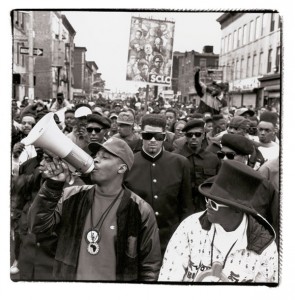
In our volume The Social Side of Politics, Vincent J. Roscigno’s article, “Power, Sociologically Speaking,” serves as the lead essay. In it, we learn that you can’t discuss politics without discussing power. This activity helps highlight the point for students and instructors alike.
Guidelines for the facilitator:
- Make four signs labeled “agree,” “strongly agree,” “disagree,” and “strongly disagree.” Hang one sign in each corner of the room.
- Tell participants that you will read a statement about power (listed below). After you read the first, participants should move to stand under the sign that most closely reflects their reaction to the statement.
- After participants have assembled under the signs, ask each group to discuss why they picked that position and choose a spokesperson to explain their rationale to the entire group.
- After each group presents its opinion, as participants to return to the center of the room, then disperse, again, to the sign that most closely represents their reaction to the same statement. If they choose, participants can change their position. Ask a few to explain whether and why they changed—or did not change—their position after hearing out the other groups.
- Repeat for each statement, adding or subtracting to alter the length of the exercise.
Statements about Power:
- Power corrupts.
- You can’t get anything done without power.
- Power is connected to race (class/gender/etc.).
- People or organizations that want to change things in their community should seek power.
